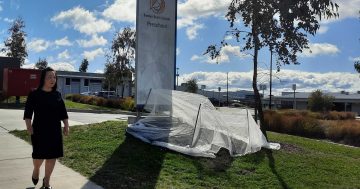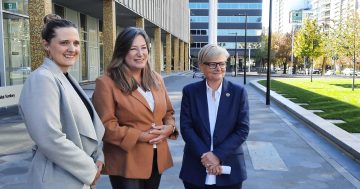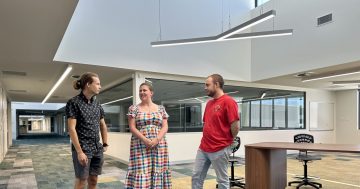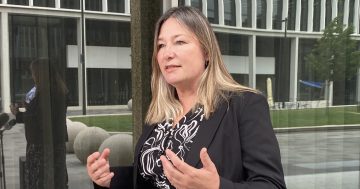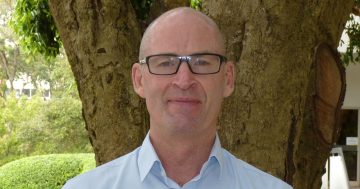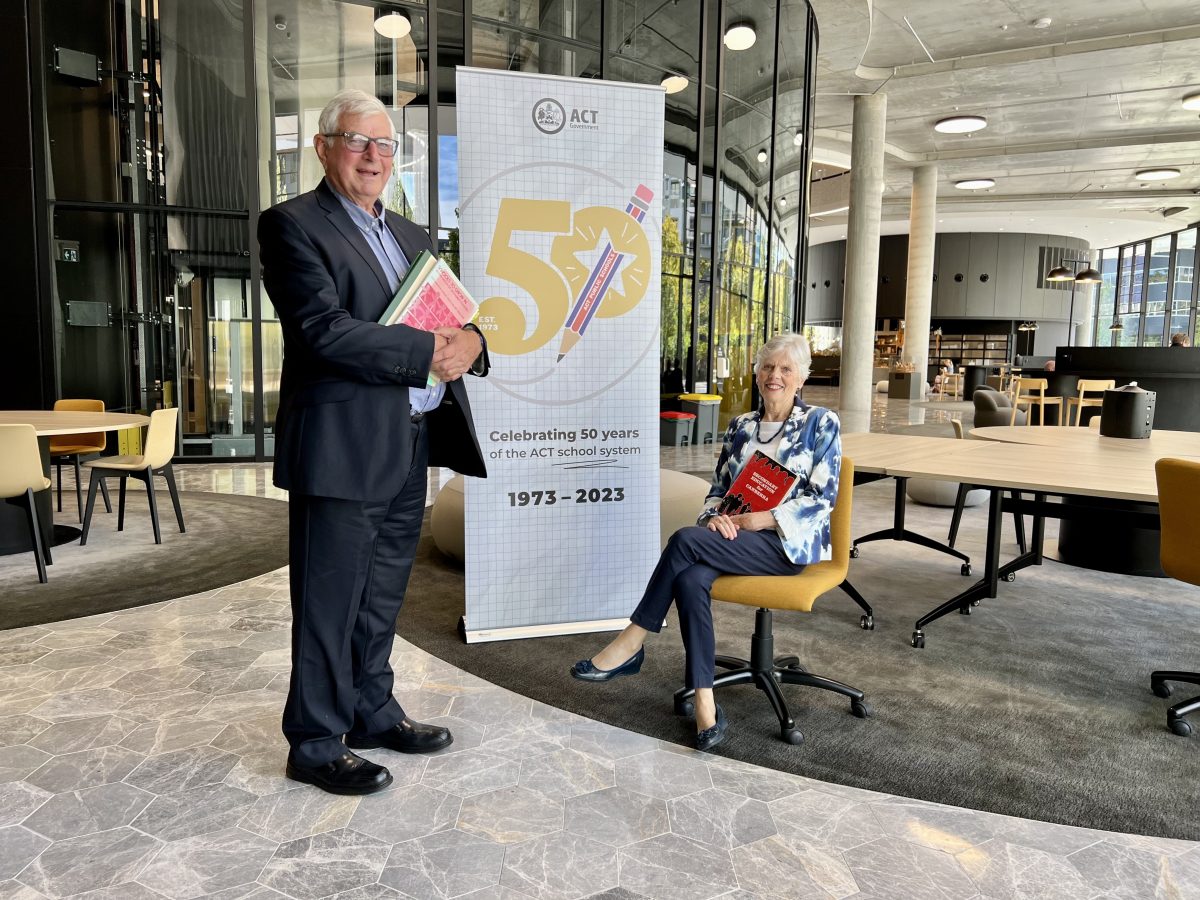
Mal Lee and Helen Strauch, founders of the ACT’s public education system. Photo: James Coleman.
Fifty years ago, Mal Lee and Helen Strauch didn’t even have time to pause work for Christmas.
They were among seven school teachers and university academics tasked with building a whole new public education system from scratch, and they had four months to do it.
“I don’t think I took a day’s holiday,” Mal reminisces.
“It was intense.”
This year marks half a century since former prime minister Gough Whitlam announced the parting of the ACT’s public schools from those in NSW. What followed was the ACT education system we know today, with a radically different structure, governance and curriculum to any other in Australia.
But it all started with a lot of work.
Mal studied teaching at Sydney University in the 1960s, but has spent almost 30 years here as a director of various schools and a principal of a secondary college, and now as an educational consultant, historian and author on the digital evolution of schooling.
Helen, meanwhile, has held teaching and leadership positions in Canberra colleges for 25 years.
“It was always my dream job,” she says.
By the ’60s, dissatisfaction with the ACT’s schools was growing on both sides. Mal says the NSW Education Department considered the ACT as “a bit of a backwater and wanted to get rid of it”, while there was an “ACT community unhappy with the education provided by NSW”.
“The parents wanted something better, something that was more appropriate for the times,” he says.
“Bear in mind we’re talking about the 1960s and 1970s here, where the world was trying all new possibilities.”
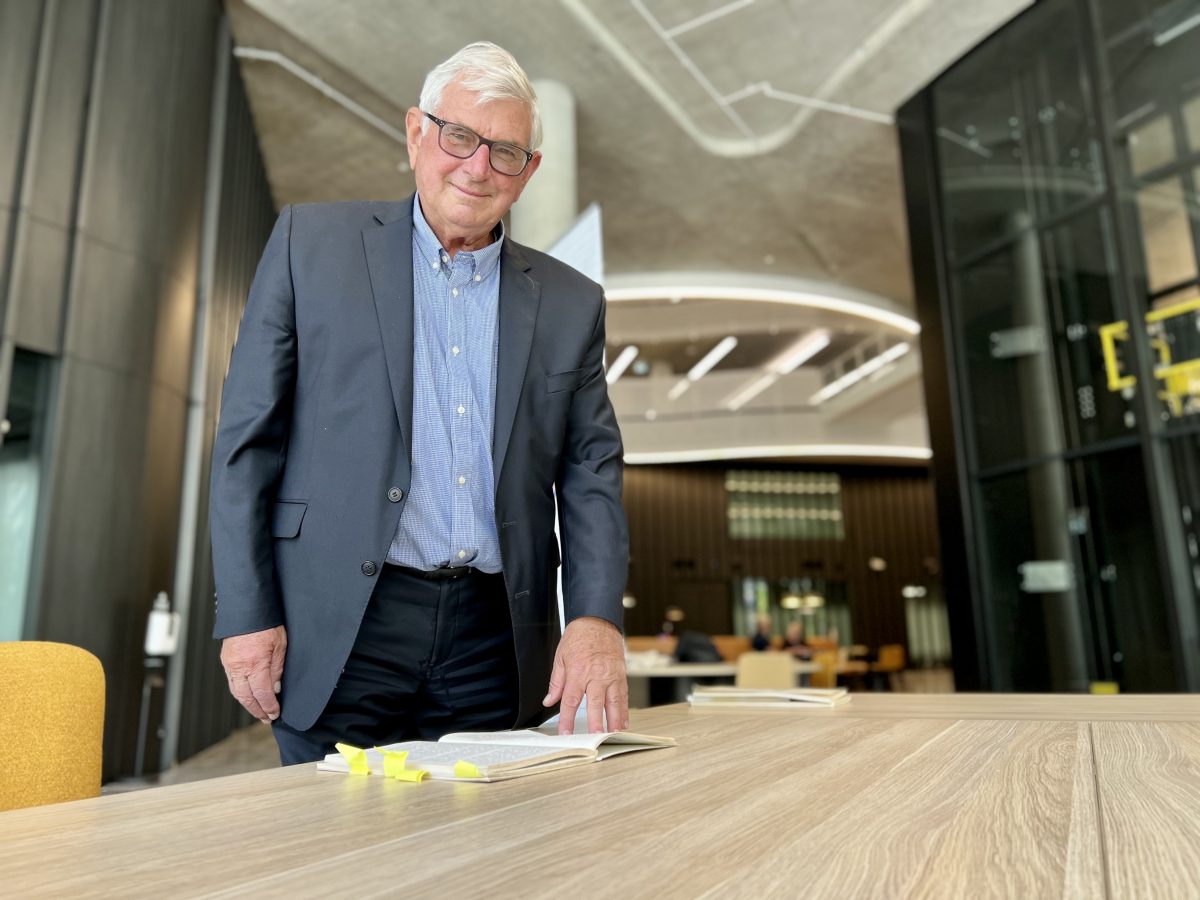
Mal Lee, one of the founders of the ACT’s public education system. Photo: James Coleman.
In 1966, the Parents and Citizens Association at the Campbell Primary School took matters into its own hands and joined forces with academics, principals and teachers to look at possible fixes.
This morphed into a working group, chaired by Sir George Currie, who lent his name to the Currie Report. This provided the blueprint for an ACT education department and became the ammunition for the group to lobby the federal government.
Sure enough, on 11 September, 1973, Mr Whitlam and Federal Cabinet gave the proposal the green light.
Within a month, Mal and Helen were tapped on the shoulder and asked to join the new Interim ACT Schools Authority Council. They had until the start of the new school year in 1974 to have everything ready.
Both were charged with setting up arguably the hardest parts – secondary school and college. But they had a clear bar in mind.
“Our system had to be able to get someone into medicine at the Sydney University,” Mal says.
They also had dwindling retention rates in high school to address.
“From day one, college students would be treated as adults – they would choose their own subjects, they would wear what they wanted in college, there wouldn’t be bells calling them to class. You talked to teachers on a first-name basis. It would be an adult world.”
This radical casualisation of school life would also be supplemented by new electives in areas such as psychology, sociology and computing, and hands-on options like auto mechanics. There was even a dedicated unit for students who didn’t feel they were ready for college.
“They could basically head out surfing for a month to work out what they wanted to do,” Mal explains.
“Essentially, we’re not going to force you – we’re not going to spoon-feed you – you decide when you’re ready.”
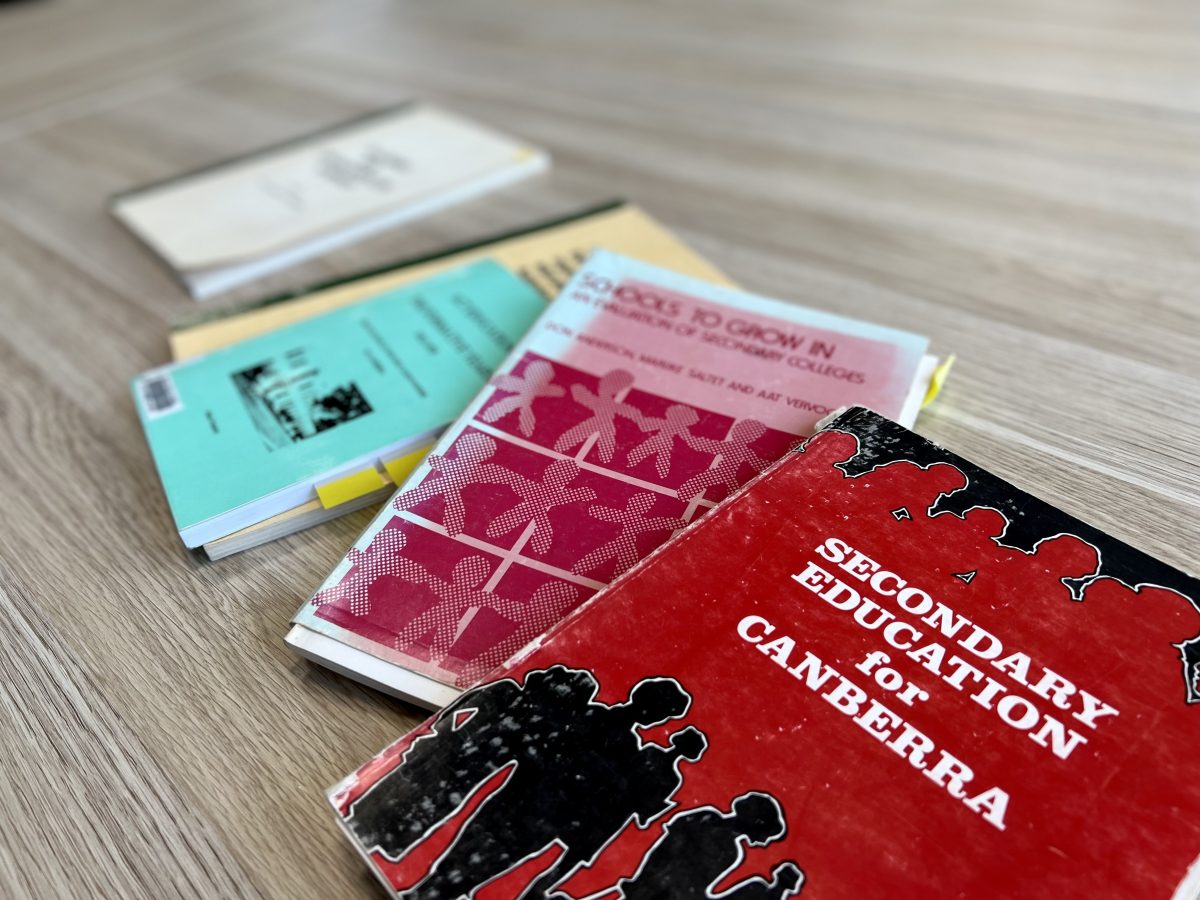
Original books outlining the ACT’s public education system. Photo: James Coleman.
But Helen says they still wanted some accountability.
“It wouldn’t be totally laissez-faire,” she says.
“You didn’t have to be at college if you didn’t have a class, but you did have to go to class. Roles would be marked and if your name wasn’t on there, you’d be called down to student services and asked to explain yourself.”
The really big job for the council was setting up a legislative framework for students to be able to be accepted into tertiary education without having to sit the external Higher School Certificate (HSC) exam used in NSW. It helped to have the Australian National University (ANU) on board from the get-go.
“Up to 30 panels made up of four to five teachers each, with academic input from universities, were involved in writing courses for the new system, out of hours,” Helen says.
“The ANU was intricately involved right down to that level, and that helped have it accepted by all universities in the end.”
Across the classes, the council opted for a school-based curriculum where the teachers would design the course, not an external board. The teachers would also assess the students throughout the year, doing away with the need for final exams. Further down, preschool would also be built into the system, now commonplace in the ACT but still a foreign concept in other states.
The first day of school arrived all too soon in February 1974, and the group watched with bated breath to see how it all went.
“It was great,” Mal says simply.
“There were no hassles. And the students really enjoyed it – they relaxed and lapped up the new courses. We had the students making decisions and being empowered by that.”
It was such a hit, the public schools in Queanbeyan became worried when their students started flocking across the border.
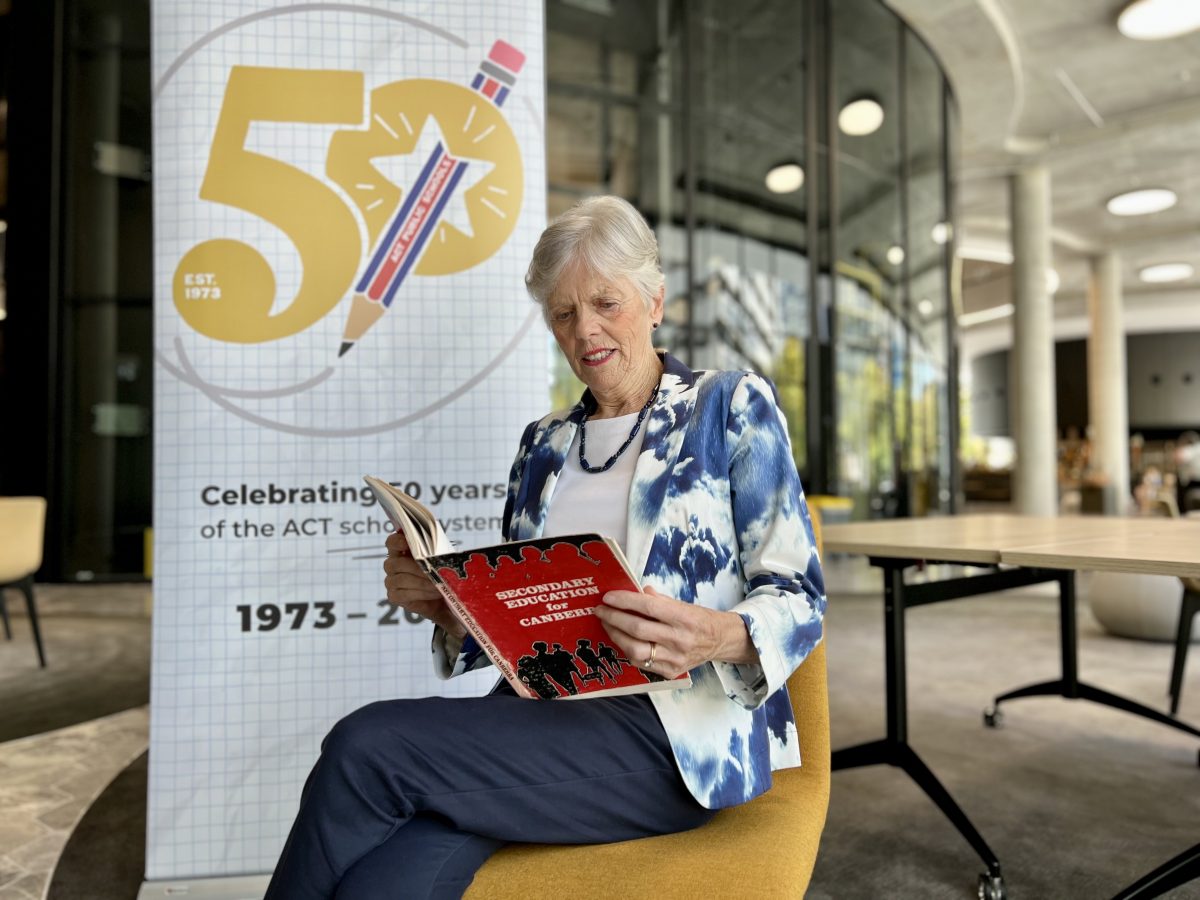
Helen Strauch, one of the founders of the ACT’s public education system. Photo: James Coleman.
All these years later, Mal says not much has changed.
“There have been minor modifications. Initially, we had no compulsory subjects, but now there’s a level of English you have to complete. Essentially, the system is still the same, and will be the same into the future.”
So the big question is: Has it worked?
Certainly, when COVID came along and wreaked havoc on schools across the nation, Mal says the ACT passed through it largely unscathed.
“Ours didn’t have to reschedule exams and deal with quite the same social distancing restrictions, because we already had the groundwork for a flexible system.”
But there have been mixed results in the National Assessment Program – Literacy and Numeracy (NAPLAN) over the years, especially in 2018, when the ANU picked up on an “alarming number” of ACT public schools “where the students were, on average, more than six months behind the levels of learning of students in other comparable schools”.
In the latest results from 2022, however, there wasn’t a single area where the Territory’s students recorded an average score below the national average. In fact, the ACT was leading in almost all areas, only down in year 5 writing and a few year 7 and 9 subjects.
Mal says the ACT schools ought to be “proudly unique rather than settle for the one-size-fits-all model some people would like to have”.
“NAPLAN doesn’t show people who are interested in following their passions,” he says.
“We were about each student, each person doing their own thing. I’d say it’s important the ACT celebrate its uniqueness in this way.”












